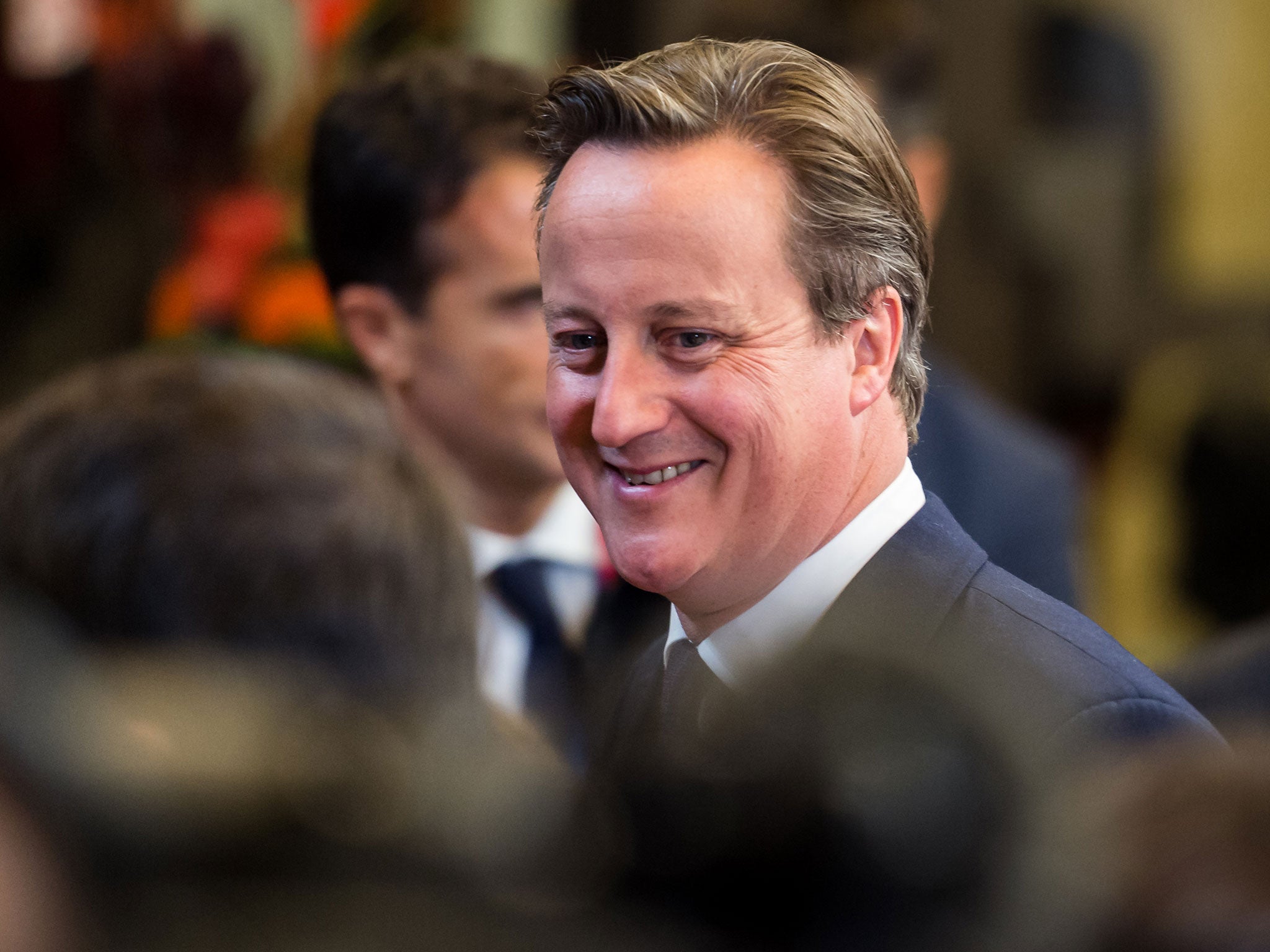David Cameron is right to miss the annual windbaggery of a UN gathering
Usborne in the USA: The Prime Minister is being very British in his priorities in a way others find hard to fathom

Your support helps us to tell the story
From reproductive rights to climate change to Big Tech, The Independent is on the ground when the story is developing. Whether it's investigating the financials of Elon Musk's pro-Trump PAC or producing our latest documentary, 'The A Word', which shines a light on the American women fighting for reproductive rights, we know how important it is to parse out the facts from the messaging.
At such a critical moment in US history, we need reporters on the ground. Your donation allows us to keep sending journalists to speak to both sides of the story.
The Independent is trusted by Americans across the entire political spectrum. And unlike many other quality news outlets, we choose not to lock Americans out of our reporting and analysis with paywalls. We believe quality journalism should be available to everyone, paid for by those who can afford it.
Your support makes all the difference.How dare he? The United Nations is turning 70 and just about any national leader you can name will be taking his or her turn at the lectern in the general debate next week at the start of this year’s General Assembly to extol world peace and prosperity. David Cameron will not be among them.
Never mind if the annual parade of presidents and potentates rarely transcends windbaggery – Britain doesn’t usually play bystander at the UN. “I just don’t get it,” a veteran newscaster at UN HQ here blurted.
Such indignation is, in this instance, quite misplaced. The Prime Minister is being very British in his priorities in a way others find hard to fathom. He will, in fact, be coming to New York and delivering a speech at that very same lectern. But he will be doing so on Sunday at the only event here in the next few days that will actually matter. He is putting impact over pomp.
This is the side summit of world leaders to adopt the 2030 Agenda for Sustainable Development to be opened this morning by Pope Francis. A programme of action designed to improve the lives of millions for generations to come, it will replace the Millennium Development Goals (MDGs) agreed back in 2000, and which, by and large, were far more successful than anyone at the time dared hope.
Next week’s general debate will span all the most urgent crises of the hour, from religious extremism to war in the Middle East, the rise of Isis and the new migration tides.
But at the root of all these upheavals are the ailments that the Sustainable Development programme precisely aims to address: inequality of wealth and opportunity, child mortality, disease, poor governance and repression. A humankind rid of these deprivations will be less inclined to fight.
You can wonder if the goals, negotiated over many months and finalised in early August, will ever become reality. They are as infuriatingly Utopian and woolly as their MDG predecessors. The document that will be signed on Friday blithely, if nobly, sets out 17 targets to make Earth a better place, including eradicating extreme poverty by 2030 as well as all forms of malnutrition and avoidable child deaths. But they are not binding. The monitoring arrangements seem flimsy.
Still, look at what happened to the MDGs, which set eight narrower global objectives. They helped – of course other factors, like surging emerging economies, played a part – to ensure that over the last 25 years those in extreme poverty were halved from 2bn to 1bn, according to the World Bank.
The MDGs “drove some of the most dramatic improvements in living standards the world has ever seen. Countless families have had their lives transformed,” Justine Greening, the International Development Secretary, said on arriving in New York for the summit. “The world now has the chance to end extreme poverty in the next 15 years.”
Save the Children suggested that the new goals, if implemented fully, could save the lives of 6,500 children a day. Yes, a day. “These goals have genuine teeth and substance,” contended the charity’s CEO, Justin Forsyth. “They build on massive progress over the last decade…This is a watershed moment we should celebrate.”
Which is what Mr Cameron will be doing here on Sunday. His absence later next week? Get over it.
Join our commenting forum
Join thought-provoking conversations, follow other Independent readers and see their replies
Comments